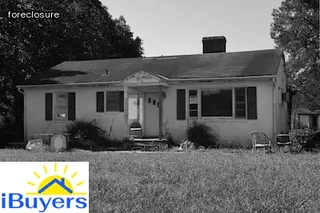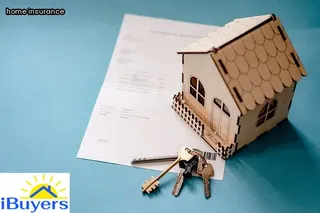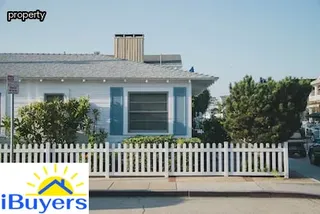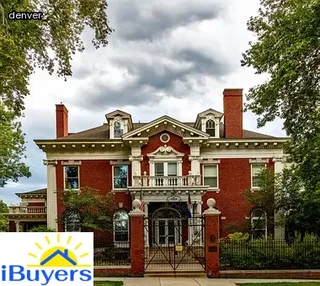Colorado homeowners may be vulnerable to foreclosure if they fail to pay their Homeowners Association (HOA) dues. To protect against this, it is important for homeowners to understand their rights and obligations under the law.
Colorado state laws provide certain protections to homeowners facing HOA-initiated foreclosures. For example, HOAs must provide written notice of the delinquency and a right to cure the delinquency prior to initiating foreclosure proceedings.
Additionally, HOAs are not allowed to collect late fees or other penalties until after they have provided written notice and given a reasonable amount of time for the homeowner to cure the delinquency. If an HOA chooses to foreclose, the foreclosure process must comply with Colorado statutes and must be conducted in accordance with due process requirements.
Further, HOAs are prohibited from initiating a foreclosure without first obtaining court approval in most cases. Understanding these legal requirements can help Colorado homeowners protect themselves from HOA-initiated foreclosures and ensure that their rights are being respected by their local HOA.

When researching the potential of a Colorado HOA to foreclose on your home, it is important to understand the data involved. Sheriff's sales are one of the primary methods used by HOAs to foreclose on homes in Colorado and can be found through public records.
In addition, HOAs have the right to initiate a foreclosure if certain conditions are met, such as being delinquent on dues for an extended period of time. It is important to note that while rare, HOAs do have the power to initiate a legal foreclosure as part of their collection process in order to pay outstanding dues.
Knowing exactly what rights an HOA has and when they can exercise them is key for any homeowner considering purchasing or living in a property covered by an HOA in Colorado.
The COVID-19 pandemic has forced unprecedented changes in the housing market, which can leave homeowners feeling uncertain of their rights and responsibilities. In Colorado, many people are wondering if they can still be foreclosed on during this crisis.
The answer is complicated. According to state law, lenders must provide homeowners with at least 90 days of notice before they attempt to foreclose on a home.
However, some lenders are providing grace periods of up to 180 days for those facing financial hardship due to the pandemic. Additionally, new federal regulations have been enacted that allow homeowners to apply for forbearance and pause or reduce their mortgage payments for up to a year without penalty.
Although these measures offer protection from foreclosure in the short term, it’s important that homeowners understand the implications of taking such action during this unique time. With banks continuing to operate under the new rules and regulations, it is important for borrowers to contact their lender as soon as possible if they experience any financial distress to ensure that their rights are protected.

In Colorado, homeowners face a unique set of challenges when it comes to foreclosure. Homeowners may feel helpless if their lender threatens to foreclose on their home.
However, with community activism and the power of collective voice, homeowners can take an active role in protecting and strengthening their rights as property owners. Community organizing allows for unified action, making it possible for individuals to speak out and access resources that might not have been available to them in isolation.
By coming together as a group and empowering one another, homeowners can gain insight into the legal processes that protect their rights and demand accountability from mortgage lenders. Through collective action, homeowners can work together to prevent foreclosure and strengthen homeownership in Colorado.
In Colorado, homeowners have an array of resources available to them in the event of a foreclosure. Financial assistance is available through state-funded programs such as the Colorado Foreclosure Hotline and Colorado Housing Connects.
Nonprofit organizations like Home Front Cares and Legal Aid Foundation of Colorado provide free legal advice and assistance. Other organizations, such as the Colorado Department of Local Affairs and US Department of Housing and Urban Development, offer loan modification programs that can help homeowners adjust their interest rates or payments to avoid foreclosure.
Additionally, many municipalities offer Property Tax Deferral Programs for seniors, disabled persons and veterans that may be facing financial hardship. For those who are unable to remain in their home, rental assistance programs are also available with the support of local government agencies.
With these resources at hand, homeowners in Colorado have access to a variety of solutions for avoiding or managing foreclosure proceedings.

In Colorado, Homeowners Associations (HOAs) can no longer foreclose on a homeowner's property for unpaid fines. This new legislation puts them in line with other states who have made similar changes to their laws, and is an important step forward in protecting the rights of homeowners.
Previously, HOAs had the power to impose liens on properties for unpaid fees or fines, which could result in foreclosure if not paid in a timely manner. The new law eliminates this power, meaning that HOAs must now seek other remedies for unpaid fees or fines such as filing a lawsuit or seeking payment from the homeowner directly.
This shift should provide a sense of security to homeowners who may have been vulnerable to foreclosure due to these types of debts. It also ensures that HOAs cannot use their power to unfairly target certain homeowners without legal recourse.
In addition, it helps protect homeowners from financial hardship caused by unexpected costs associated with foreclosure proceedings.
In Colorado, homeowners have the right to a notice and opportunity to rectify any violations prior to facing fines or legal action. This process is known as the right to cure violation, which requires homeowners to receive warning of potential penalties and a chance to correct any issues before their home is subject to foreclosure.
If a homeowner does not respond, however, they may be subject to fines or other legal proceedings for failure to comply with local laws. All notices must be received in writing and presented by an authorized individual from the governing body.
Homeowners should seek assistance from a qualified legal professional if they are uncertain about any documentation they are receiving regarding their property. The right to cure allows homeowners time and resources so they can make sure all necessary repairs and/or improvements are made in order to avoid incurring additional costs down the line.

When it comes to foreclosure proceedings, understanding the requirements of a homeowners' association (HOA) in Colorado is essential. As part of their obligation to owners, HOAs must provide timely notice of delinquency and record any liens for unpaid assessments.
In addition, it's important for homeowners to be aware that HOAs must also provide written intent to foreclose on a property if an owner fails to make payments. Being informed about these guidelines can help owners avoid costly fees associated with delinquencies and foreclosure proceedings.
For example, Colorado law requires HOAs to allow at least 14 days after the date of delinquency before they can pursue legal action or file a lien on a property. Furthermore, they must provide written notice at least 90 days prior to initiating foreclosure proceedings.
To ensure compliance with these laws, it's wise for owners to work directly with their HOA and stay informed about their rights and obligations under state law.
When it comes to Colorado HOA's and foreclosure, a majority board vote is required to refer accounts to collections. This vote must be taken by the members of the HOA board who are either elected or appointed by the association members.
It is important to note that this majority vote does not authorize the foreclosure process itself, but rather authorizes collection activities like sending letters and filing legal claims. Additionally, a majority of board members must also agree on which accounts should be referred to collections.
The amount of votes required for referral depends on the size of the HOA in question and may vary from state to state, although a simple majority is most common. Furthermore, while some HOAs do have the power to foreclose on homes, they typically only do so as a last resort after other collection methods have failed.

When it comes to resolving a dispute between homeowners and their Homeowner’s Association (HOA) in Colorado, Small Claims Court can be an effective alternative. In situations where the HOA is threatening foreclosure, the homeowner may be able to avoid this by filing a lawsuit in Small Claims Court.
This process may take some time and effort but offers a way for both parties to reach a settlement without resorting to foreclosure. The homeowner will need to present evidence of their case as well as any relevant documents that prove their claim.
Additionally, they must submit all necessary paperwork to the court in order for the case to proceed. The outcome of the case will depend on the facts presented and whether or not the judge rules in favor of the homeowner or HOA.
If successful, Small Claims Court can provide an amicable resolution that avoids costly litigation fees and other expenses associated with foreclosure proceedings.
In Colorado, CCIOA statutes set forth the payment priorities for assessments on a home. These assessments must be paid first before any other claims against the property.
This means that when the homeowner is delinquent in their assessment payments, the Colorado HOA can foreclose on their home if all other attempts to collect payment have failed. The homeowner may be able to negotiate an alternative payment plan with the HOA in order to avoid foreclosure.
But if no agreement is reached and payments are not made, then the HOA has the legal right to foreclose on the property. It is important for homeowners to know their rights and obligations under CCIOA statutes so they can make sure their assessment payments are up-to-date and take steps to avoid foreclosure if necessary.

In Colorado, Homeowners Associations (HOAs) are important organizations that handle a variety of tasks related to the maintenance of homes and neighborhoods. Unfortunately, they also have the power to foreclose on homeowners when necessary.
However, this power must be held accountable to state laws in order to ensure fair and equitable treatment of homeowners. Colorado residents need to be aware of their rights when it comes to HOAs and foreclosure, as well as any applicable laws that might protect them from being taken advantage of by their HOA.
It is also important for homeowners to understand the process by which an HOA can file for foreclosure and the timeline involved so they can make informed decisions about their property. With the right knowledge, homeowners can ensure that their HOAs remain accountable for any violations of state law and protect themselves from unfair or illegal foreclosure proceedings.
When facing an uncooperative Colorado Homeowner’s Association Board, successful negotiations require creative solutions and solutions that are beneficial to both parties. Make sure you are well prepared with your facts and figures before engaging in the negotiation process.
It is important to have a clear understanding of any applicable laws or rules that may affect the outcome of the discussion. Be persistent in communicating clearly and concisely with the board and remain open-minded to potential compromises.
Additionally, it is essential to be respectful of the other party’s position while maintaining your own agenda. Being organized and having a positive attitude during interactions can go a long way in facilitating successful negotiations with an uncooperative board.

Understanding the power behind the movement for Coloradans facing foreclosure is essential for us to learn from each other's struggles. With the current economic climate, many families in Colorado are struggling to make ends meet, and as a result, many are at risk of losing their homes to foreclosure.
It is important that we understand the magnitude of this issue and how it affects individuals, families, and communities. Foreclosure can be financially and emotionally devastating and has long-term implications.
The issues associated with foreclosure can be complex, but there are ways that people can work together to find solutions. By understanding what different groups are doing to fight back against foreclosure, we can learn from each other's experiences and apply those lessons to our own situation.
Community organizations such as housing coalitions play an essential role in providing resources for those facing foreclosure, while legal aid organizations provide valuable advice about rights and responsibilities under state law. Through a unified effort by citizens, businesses, and government entities, we can use our collective power to protect people from financial hardship due to foreclosure proceedings.
The recent reforms of the Colorado HOA industry have made a drastic impact on the attorneys involved. Some of these changes include stricter regulations on how attorneys can initiate foreclosure proceedings, as well as more stringent guidelines for how they are to conduct themselves in all aspects of their work.
This has resulted in a shift away from the traditional methods used to resolve disputes between homeowners and HOAs, such as relying heavily on court intervention. Additionally, there is now an increased focus on alternative dispute resolution methods like mediation and arbitration, which can help to bring about a quicker resolution while providing greater protection for homeowners.
The reforms have also caused attorneys to be more proactive in working with their clients in order to provide them with the best possible outcome. As a result of these changes, attorneys must stay up-to-date with the latest legal developments and ensure that they are aware of any new developments or potential risks associated with their particular case.
Ultimately, these reforms have had a significant impact on the HOA industry's attorneys and should continue to be monitored closely as they develop.

In the state of Colorado, homeowners have been standing up to their mortgage lenders and taking action when they believe they are being treated unfairly. Homeowners have found that by banding together, they can make a stronger impression on those who are in charge of the foreclosure process.
Through the use of social media and other forms of communication, homeowners are able to share their stories with each other and create a unified front against foreclosure. By engaging in activities such as petition drives, phone banking, protests, and letter writing campaigns, these homeowners are able to increase public awareness of the issue and show lenders that they are serious about protecting their homes.
The movement is growing in momentum as more people become aware of the situation and join forces with others who have experienced similar struggles. With homeowners coming together from across Colorado, this movement is inspiring others to stand up for their rights and fight for a better future for all homeowners in the state.
In Colorado, homeowners have certain legislative protections in place to ensure their rights are safeguarded. The Colorado Common Interest Ownership Act (CCIOA) of 1992 governs the powers and responsibilities of community associations, outlining homeowner rights to a fair and transparent process when it comes to decisions about levying assessments, foreclosures, and other matters.
Additionally, the CCIOA provides guidance for transparency standards for boards which must be disclosed to all homeowners. This includes publishing agendas in advance of board meetings and providing access for homeowners to review documents about finances, rules, regulations and more.
Homeowners should also be aware that some foreclosures may not require prior written notice as defined by the law; however, every attempt should still be made by the association’s board to notify affected homeowners before pursuing legal action against them.

The power of a Homeowner's Association (HOA) can be daunting for many, especially when it comes to the potential of foreclosure. In Colorado, this is a serious consideration for homeowners who are behind on their dues and may be at risk of foreclosure by their HOA.
Investigating whether or not an HOA in Colorado has the right to foreclose on a house is essential to understanding the rights and responsibilities that come with being a homeowner in the state. It is important to know what your options are if you find yourself in such a situation, both legally and financially.
Understanding how HOAs work in Colorado can help homeowners protect themselves from costly foreclosure proceedings. It is also important to understand how and why HOAs have the power they do, as well as any legal protection afforded by state laws pertaining to HOAs.
A homeowner should always investigate their rights prior to entering into any financial agreement with an HOA and be aware of what could happen if they cannot meet their contractual obligations.
The Independent Analysis Center (IAC) is one of the most popular sources for information on Colorado home foreclosure laws. Colorado has some of the toughest foreclosure laws in the US, and IAC’s extensive research and analysis can help homeowners understand how they can protect their homes from being foreclosed on.
Many homeowners in Colorado are unaware of their rights when it comes to foreclosure, and IAC provides valuable insight into what options are available to them. Their popular posts include topics such as how different types of mortgages may be affected by Colorado foreclosure regulations, what to do if a lender attempts to foreclose on your home, and how to negotiate with lenders when facing foreclosure.
With so many resources available from IAC, it’s easy to see why they are one of the most read posts online for independent analysis about Colorado home foreclosure laws.

As a homeowner in Colorado, it is important to stay informed about the continually changing industry of housing and foreclosures. To keep up with these developments, it is essential to access archived posts to learn more about Colorado laws regarding home foreclosure.
Homeowners should research the rights they have under state and federal law when facing foreclosure, as well as any legal protection they can receive from their mortgage lender. Additionally, homeowners should be aware of any new regulations that the state has passed in order to protect them from losing their home due to foreclosure.
Keeping up with industry developments through archived posts can help homeowners understand their rights and how best to protect their home from foreclosure proceedings. Understanding these laws and changes can also help homeowners navigate the process if they do find themselves facing foreclosure in Colorado.
It is important for homeowners to make sure they are staying current with industry developments in order to avoid any surprises when it comes time for them to face foreclosure proceedings.
In Colorado, a new law has been passed that addresses the rights of Home Owners Associations (HOAs) to foreclose on homes. The law states that HOAs are allowed to foreclose on homes if certain conditions are met.
These conditions include if the homeowner has failed to pay their assessments or other fees due to the HOA, or if they have violated any HOA rules or regulations. If these conditions are not met, then the HOA must first obtain a court order before they can take action against the homeowner.
The court will decide whether or not foreclosure is appropriate and may also order other remedies such as damages for unpaid assessments. This law was enacted to ensure that homeowners in Colorado who live in communities governed by an HOA have fair and equitable protection from potential foreclosure actions taken by their HOA.

In Colorado, a Homeowners Association (HOA) can evict an owner if they are not complying with the HOA’s regulations. An HOA is granted the right to file a lien against the owner’s property if they fail to pay their assessments or fines.
If the owner fails to satisfy the lien within a certain amount of time, then the HOA may initiate foreclosure proceedings and ultimately repossess the property. In some cases, an HOA will be willing to negotiate payment arrangements with an owner in order to avoid foreclosure.
However, owners should be aware that HOAs have the legal authority to foreclose on properties in Colorado in order to collect unpaid fees or assessments.
In Colorado, the statute of limitations for an HOA to foreclose on a home generally ranges from 6-10 years. An HOA can initiate a foreclosure action if the homeowner is delinquent in paying assessments or violates any rules and regulations set by the association.
The amount of time that an HOA has to initiate a foreclosure varies depending on how the lien is recorded. In general, HOAs must file suit within six years after assessments become due in order for their liens to remain valid.
If the lien is not filed within that timeframe, it becomes invalid and unenforceable in court. Additionally, HOAs have up to 10 years to initiate a foreclosure action based on nonpayment or violation of covenants, conditions and restrictions (CC&Rs).
This means that if a homeowner fails to pay their assessments or violates any CC&Rs within 10 years prior to filing suit, then the HOA can still foreclose on the property even if they did not file suit within six years from when assessment became due. It's important for homeowners living in Colorado communities with HOAs to be aware of these laws so they can protect themselves from potential foreclosure actions.
In Colorado, Homeowners Associations (HOAs) are subject to certain regulations. The Colorado Common Interest Ownership Act (CCIOA) defines the powers of HOAs and sets forth procedures for collecting assessments and foreclosing on homeowners.
Under CCIOA, a HOA may foreclose upon a homeowner if they fail to pay their assessment fees. In addition, HOAs must follow certain rules when initiating foreclosure proceedings.
They must provide notice to the homeowner that describes the amount owed, the date by which payment is due, and any additional information required by state law. HOAs may also be subject to local ordinances or other regulations issued by county or city governments in Colorado.
For example, some counties have enacted laws that limit the circumstances under which an HOA can initiate foreclosure proceedings against a homeowner. It is important for homeowners in Colorado to be aware of their rights and obligations when it comes to dealing with their HOA and foreclosure proceedings.
A: Yes, HOAs can foreclose on a house in Colorado if the homeowner does not pay their dues. The HOA can choose to initiate either judicial foreclosure or non-judicial foreclosure, depending on the lienholder's rights. In both types of foreclosure, the property may be sold at a public foreclosure auction.
A: Yes, a Homeowner Association (HOA) can foreclose on a house in Colorado with a FIRST LIEN.
A: Yes, under certain circumstances, an HOA can foreclose on a home in Colorado. According to Rocky Mountain PBS and Propublica’s investigation into Colorado’s HOA foreclosure law, if a homeowner fails to pay their HOA fees, the association may take legal action that could lead to foreclosure. For more information visit ProPublica.org.
A: Yes. The Colorado Common Interest Ownership Act allows HOAs to foreclose on homes in order to collect past-due assessments. This includes the right to recoup attorney fees, court costs, and other expenses related to litigations or lawsuits if necessary.
A: Yes. In Colorado, HOAs can foreclose on a house if the homeowner does not pay their HOA dues or assessments. Additionally, the HOA can recover attorney fees, court costs, and other expenses related to litigation or lawsuits through foreclosure.
A: Yes, an HOA can legally foreclose on a house or townhouse in Colorado to recover debts owed by the homeowner. This includes court costs, attorney fees, and other creditor expenses associated with litigation or lawsuits.
A: No, HOAs in Colorado typically cannot foreclose on condos or condominiums for the purpose of recovering any expenditure related to journalism.